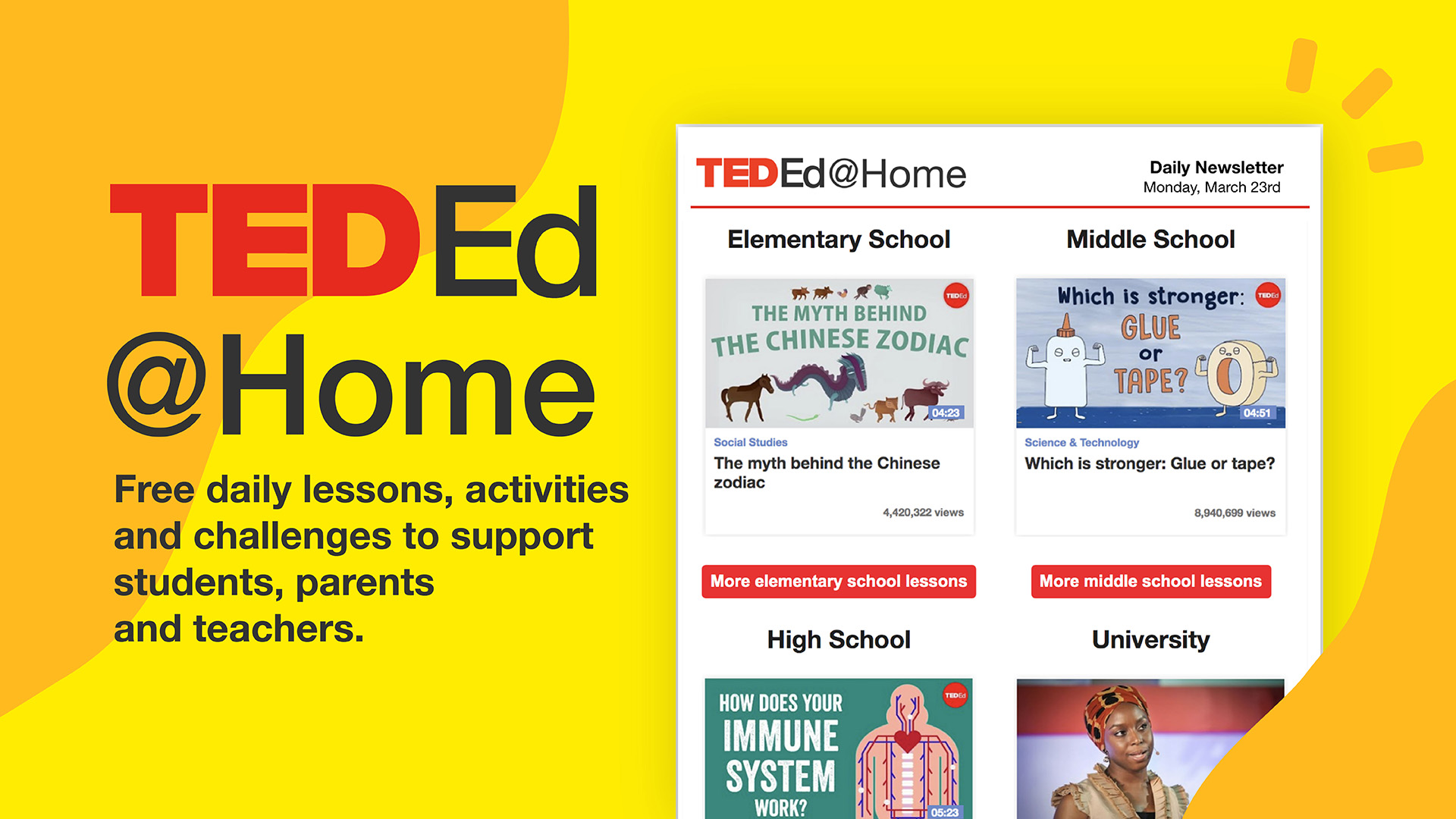In response to the COVID-19 pandemic’s unprecedented impact on education systems worldwide, TED’s award-winning youth and education initiative TED-Ed is focused on providing free, high-quality educational resources to millions of families around the globe. TED-Ed’s existing library of free, video-based lessons has been built by a network of 500,000 educators, spans all ages and subjects and features interactive lesson plans that complement thousands of TED-Ed Animations, TED Talks and other carefully curated educational videos.
By providing a variety of educational resources and engaging learning experiences, our hope is to help students, teachers and families replace feelings of anxiety, isolation, chaos and exhaustion with healthier and more sustainable feelings like curiosity, connectivity, predictability and rejuvenation. Here’s how you can follow along:
Announcing TED-Ed@Home
Launched last week, TED-Ed@Home is a daily newsletter that’s leveraging the collective expertise of thousands of TED speakers, TED-Ed educators and animators, and TED Translators to provide high-quality, online learning experiences for students, teachers and families everywhere — for free.
To get free daily lesson plans delivered to your inbox — organized by age group and spanning all subjects — sign up for the TED-Ed@Home newsletter. The newsletter features interactive, curiosity-invoking, video-based lessons around subjects commonly taught in school. The lessons are tagged to the appropriate grade levels, and subjects cover the arts, literature, language, math, science, technology and more. Most featured videos will offer translated subtitles in dozens of languages, and each lesson will include interactive questions, discussion prompts and materials to dig deeper. Teachers and parents can use the lessons as-is or easily customize them to meet their learners’ needs.
… and the TED-Ed Daily Challenge!
School closings don’t just keep students away from the classroom; they also keep students away from each other. While it’s critical that young people stay at home right now, it’s equally vital for students to see and hear from other young people — and for them to experience play in safe and meaningful ways.
On Instagram, we’re creating a fun way for students and their families to use their brains and common household items to creatively respond to educational challenges issued by TED speakers throughout the world. Each weekday at 2pm, head over to @tededucation for a brief educational talk and challenge from a new TED speaker. We’ll be handing over our account to TED speakers of all ages, who will use Instagram Stories and Instagram Live to deliver brief educational talks and issue creative, interactive, family-oriented challenges to Instagram users around the world. Viewers can respond using their own Instagram accounts, and TED-Ed will feature the most creative responses on our channel.
